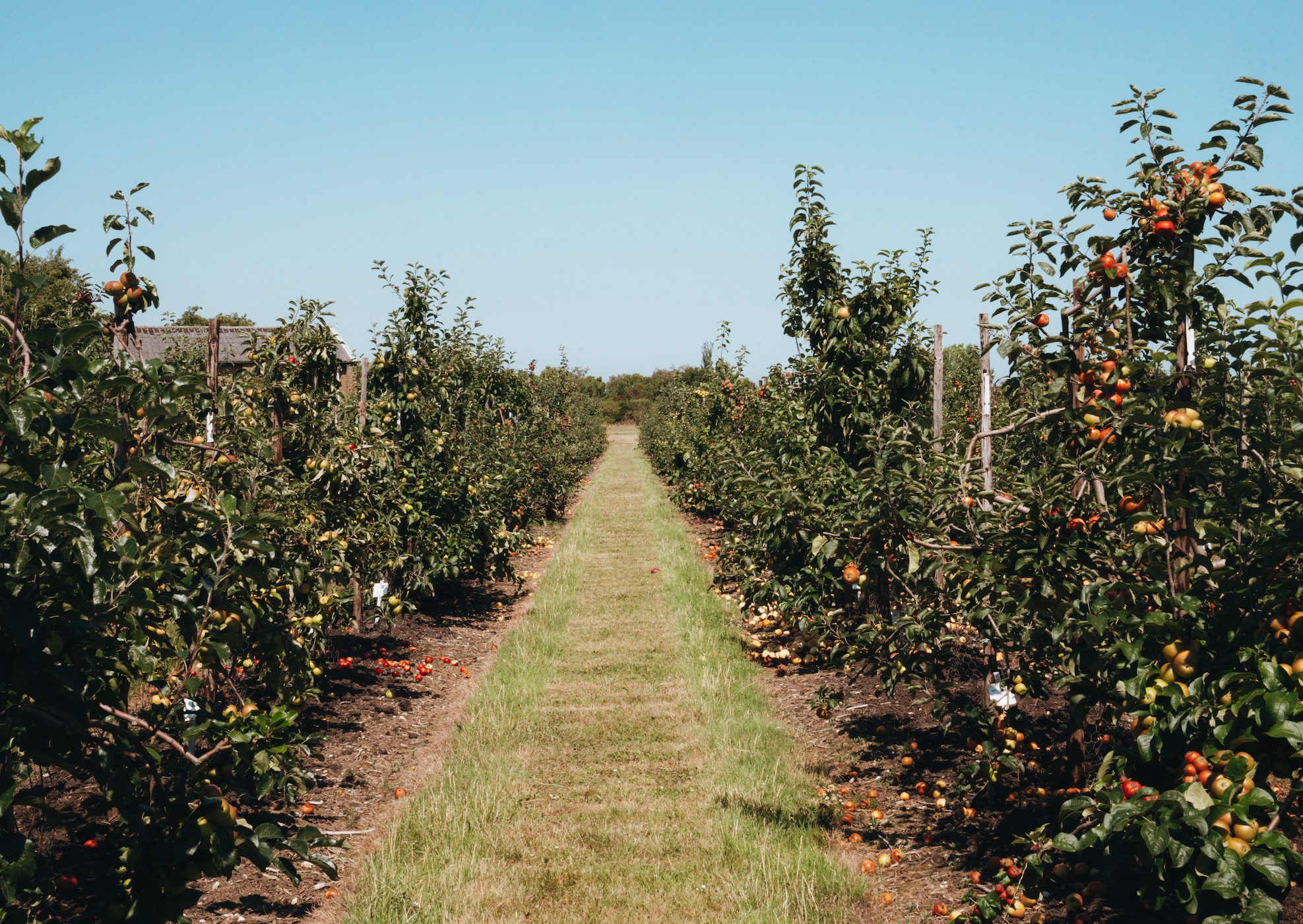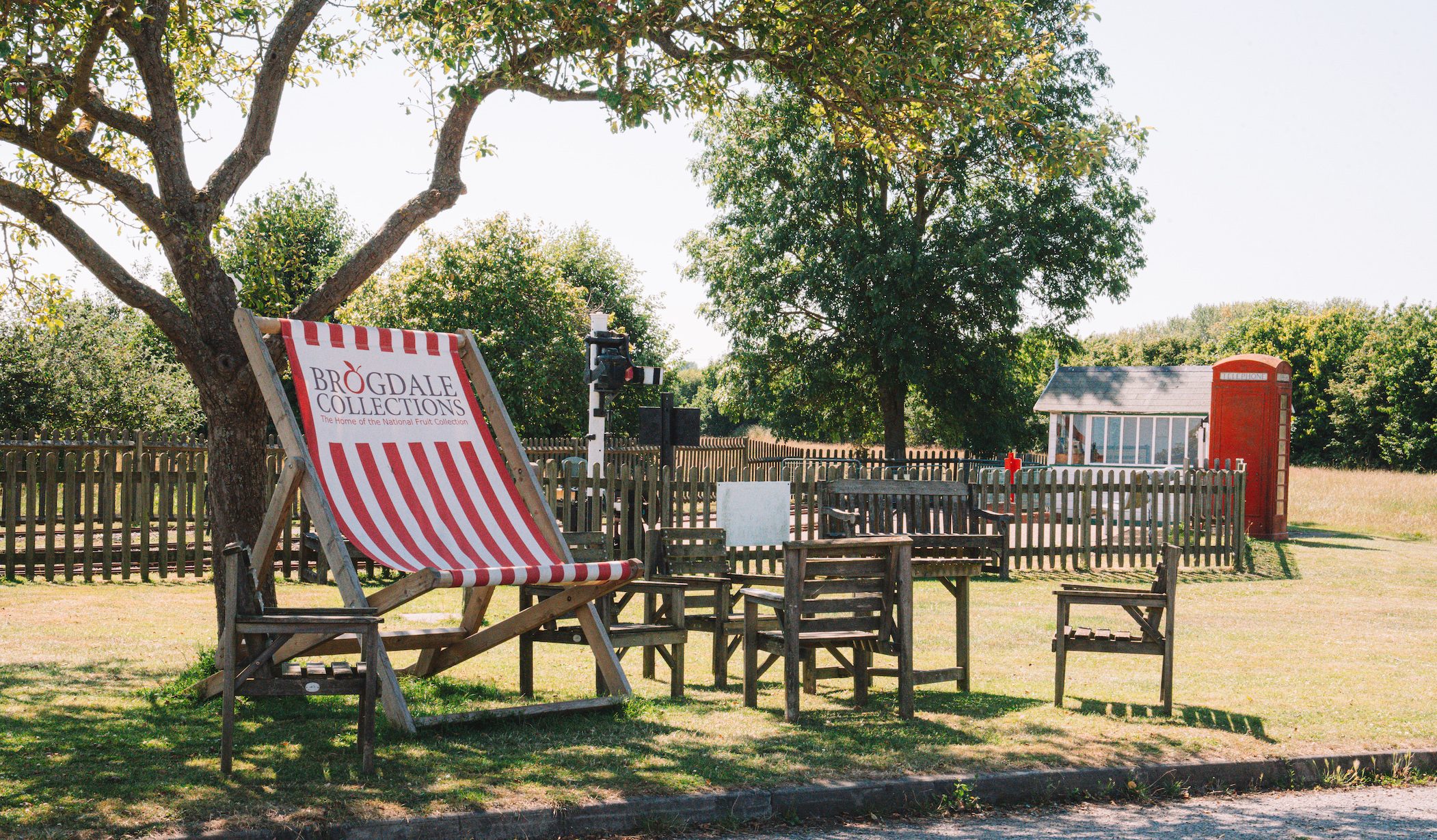Spread over 160 acres (the size of 90 football pitches) near Faversham, Kent, you’ll find Brogdale Collections – an educational charity which provides access to the National Fruit Collection. The orchards on this site hold over 3000 varieties of fruit trees and are a living museum of fruit heritage in the UK.
The National Fruit Collection (still owned by tax payers) goes back over 200 years. Back in the day, fruit would come in from overseas and people would compare it to something they knew locally. Because of this however, people called fruit whatever they fancied. One variety of apple, the London Pipin, for example, had over 100 names. Something needed to be done to centralise them and the National Fruit Collection was born.
After World War I, DEFRA (the UK’s Department for Environment, Food & Rural Affairs) wanted to feed more people in a healthier way and the site started breeding research. The University of Reading are now the curators of the National Fruit Collection – think of it like the V&A of the fruit collecting world.
To spend a day at Brogdale (we highly recommend venturing out on one of their guided tours) is to learn about the incredible variety of fruit available in the UK. For what we’ve come to know as apple varieties in grocery stores is just the very tip of the iceberg.
What you’ll find at Brogdale:
- 404 varieties of cherries
- 332 varieties of plums & gages
- 48 varieties of nuts
- 2131 varieties of apples with fantastic names such as “Bloody Ploughman,” “St Edmund’s Pippin” and “Knobby Russet”. The oldest variety of apple in the collection today dates back to 450 AD – the Decio Apple brought over by the Romans.
- 523 varieties of pears
- 19 varieties of quince
- 4 varieties of medlars (an odd looking fruit popular in medieval times which Shakespeare famously referred to as “dog’s ass”.)
Keep an eye out for a very humble looking little sapling with an extraordinary story behind it. Brogdale was the recipient of one of eight young trees from the pips of Isaac Newton’s apple tree to have been carried into space with British ESA Astronaut Tim Peake. The pips spent six months floating in microgravity as part of the “Pips in Space” project before returning to earth in 2016. The UK Space Agency, the National Trust and the Royal Botanic Garden, Kew worked together to help the seeds break dormancy after their return.
Panzer’s is delighted to make fruit from Brogdale available to Panzer’s customers when it is in season, from cherries to plums and from apples to pears. We hope you discover something new each year. We hope you’ll appreciate that fruit tastes better the day after it is picked from the tree just two hours outside of London. And even better when picked directly off the tree in Kent. For more information on Brogdale Collections and the National Fruit Collection, visit their website here and join one of the guided tours or explore their corporate volunteering days.
For a video of our team’s day out in Kent, take a look here!

